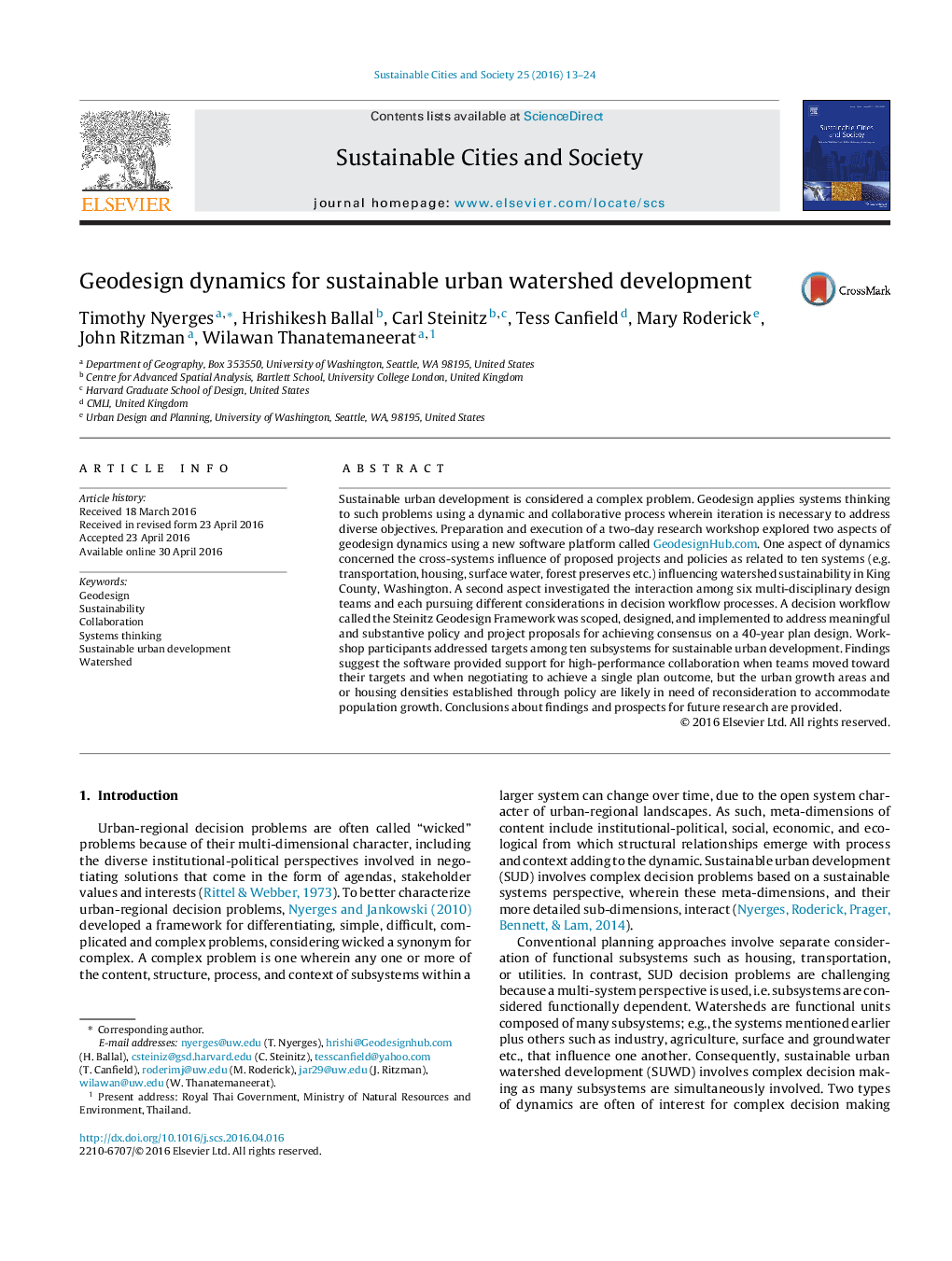| Article ID | Journal | Published Year | Pages | File Type |
|---|---|---|---|---|
| 6775876 | Sustainable Cities and Society | 2016 | 12 Pages |
Abstract
Sustainable urban development is considered a complex problem. Geodesign applies systems thinking to such problems using a dynamic and collaborative process wherein iteration is necessary to address diverse objectives. Preparation and execution of a two-day research workshop explored two aspects of geodesign dynamics using a new software platform called GeodesignHub.com. One aspect of dynamics concerned the cross-systems influence of proposed projects and policies as related to ten systems (e.g. transportation, housing, surface water, forest preserves etc.) influencing watershed sustainability in King County, Washington. A second aspect investigated the interaction among six multi-disciplinary design teams and each pursuing different considerations in decision workflow processes. A decision workflow called the Steinitz Geodesign Framework was scoped, designed, and implemented to address meaningful and substantive policy and project proposals for achieving consensus on a 40-year plan design. Workshop participants addressed targets among ten subsystems for sustainable urban development. Findings suggest the software provided support for high-performance collaboration when teams moved toward their targets and when negotiating to achieve a single plan outcome, but the urban growth areas and or housing densities established through policy are likely in need of reconsideration to accommodate population growth. Conclusions about findings and prospects for future research are provided.
Related Topics
Physical Sciences and Engineering
Energy
Renewable Energy, Sustainability and the Environment
Authors
Timothy Nyerges, Hrishikesh Ballal, Carl Steinitz, Tess Canfield, Mary Roderick, John Ritzman, Wilawan Thanatemaneerat,
